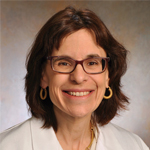Personal Responsibility
Primal Kaur, MD, assistant professor of medicine at Temple, says individuals need to take responsibility for making the balance between career and family work for them. “You have to show a certain efficiency when you’re married and have children,” she advises. “I make a list in my mind of what I have to do for today and make sure I’m on time for finishing it. I do what I’m expected to do and pursue my career interests and make sure I finish everything in time to go home and be with my family.”


